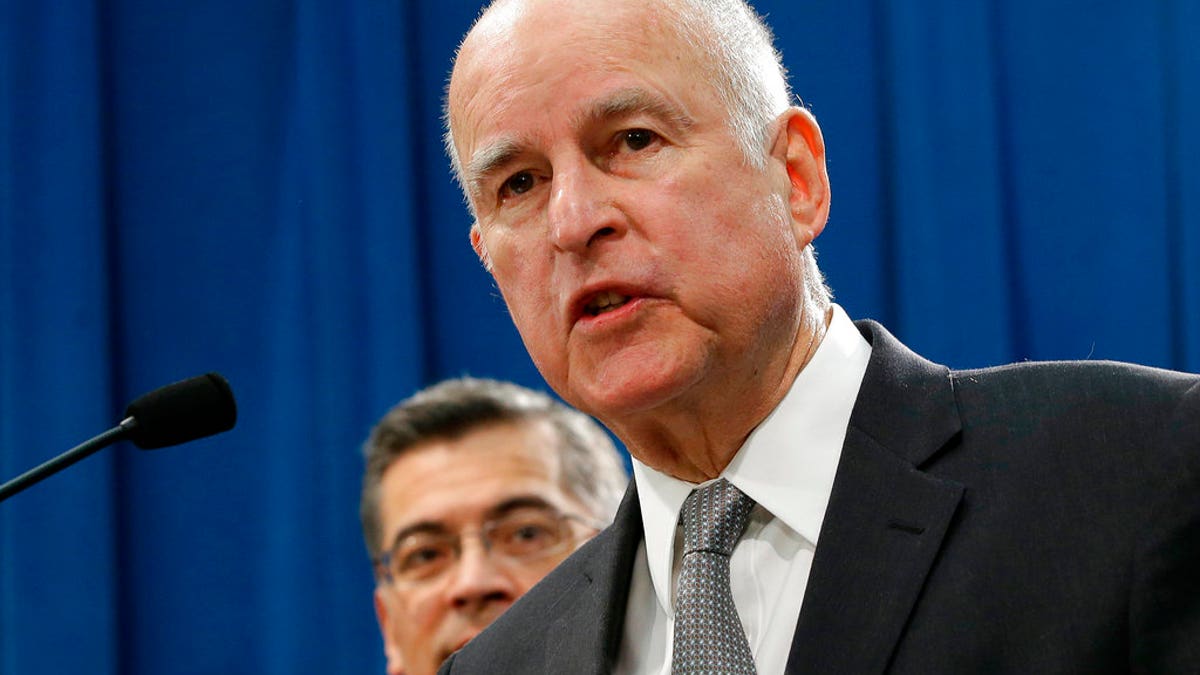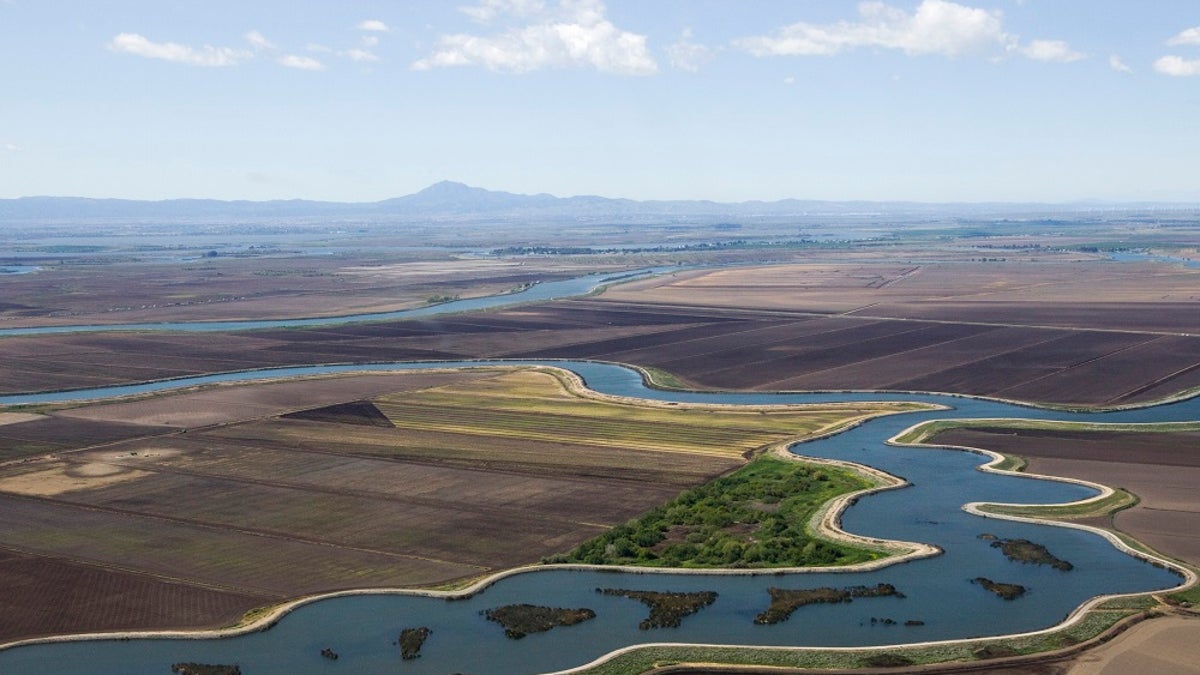
California Democratic Gov. Jerry Brown signed the state's new gas tax into law in April 2017, in an effort to raise billions for infrastructure improvements. (AP)
California's largest water agency voted Tuesday to bear most of an $11 billion project to modernize the state’s aging infrastructure that delivers water from its largest river.
The board of the Metropolitan Water District of Southern California voted in favor of taking the lead on California WaterFix, a plan for building two 35-mile-long tunnels to divert part of the Sacramento River to supply water to the San Francisco Bay Area, the agricultural San Joaquin Valley and Southern California.

The Sacramento-San Joaquin Delta in California. (Reuters)
"This is a historic decision that is good for California — our people, our farms and our natural environment," Gov. Jerry Brown said in a statement.
Brown, a Democrat who has supported the project for years, nearly saw it fall apart with less than a year left in his administration after some water districts balked at the original $17 billion total cost.
The MWD vote, which secures about $10.8 billion, does not guarantee the tunnels will be built, however. The project still requires multiple permits and faces litigation opponents who consider it too expensive and dangerous.
Opponents who fear negative effects on the environment are pushing for more sustainable developments, the San Francisco Chronicle reported.
Meanwhile, an MWD analysis showed that two tunnels wouldn't bring more water to Southern California than one tunnel, so critics from the Los Angeles and San Diego County Water Authority argued against the plan, the Los Angeles Times reported.
"We don't sit here today to tax our members for the entire state of California," Los Angeles delegate Lorraine Paskett said, according to the Times. "I can't support a vote that will put our ratepayers at risk."
"We don't sit here today to tax our members for the entire state of California. I can't support a vote that will put our ratepayers at risk."
But supporters say the Sacramento-San Joaquin Delta's delivery system is outdated and vulnerable to earthquakes, flooding, saltwater intrusion, sea level rise and environmental degradation.

Lorraine Paskett (California High-Speed Rail Authority)
"We need to move forward now to make sure we don't have a natural disaster that impacts our water supply," MWD board Chairman Randy Record said.
MWD officials said the agency's increased investment in the project is expected to cost the average Southern California household up to $4.80 per month in increased water bills. Critics have estimated a much higher impact, suggesting monthly bills for Los Angeles residents could jump by as much as $16 per month.
The WMD provides water to 19 million residents in Southern California – the most populous and concentrated region in the state.
The Associated Press contributed to this report.




